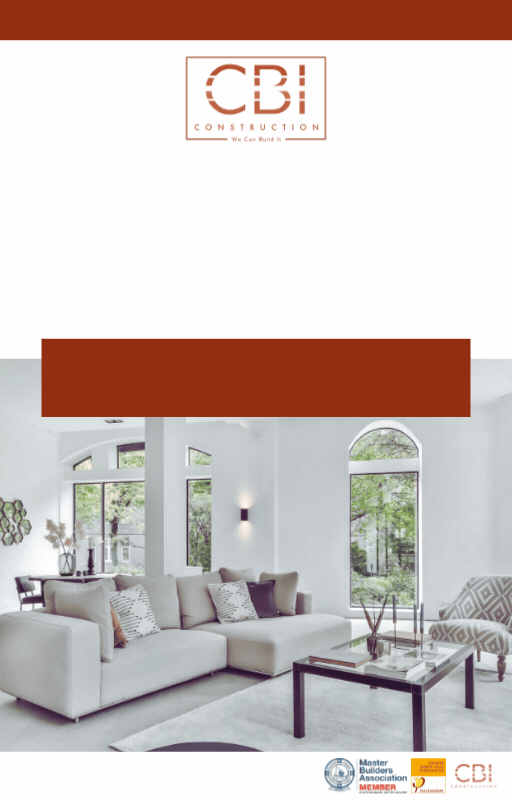CBI Blog Series
”Blueprint to Your Dream Home: A Builder's Guide”
PART 3
Before you jump into a construction project, your first big decision centres around the contract type. Two common options are the Fixed Price Contract and the Cost Plus Contract. Understanding the differences between these contracts is key to ensuring a smooth project flow and staying on budget.
With a Fixed Price Contract, the builder commits to completing the project at a set cost. This type of contract is valued for its predictability. Once the price is agreed upon, it typically stays the same unless there are significant changes to the project scope.
Benefits:
Budget certainty: You know the project cost upfront, bringing peace of mind to budget-conscious folks.
Fewer surprises: Additional costs during construction are usually the builder's responsibility, not yours.
Simplified management: A clear budget makes handling the project's finances a breeze.
Drawbacks:
Higher initial costs: Builders often include a cushion in the fixed cost to cover unexpected expenses, which might raise your upfront spending compared to other contract types.
Limited flexibility: Making changes mid-project could result in costly adjustments to the contract terms.
Fixed Price Contracts work well for those with a clear project vision who want to avoid the stress of unpredictable expenses. However, they may not be the best choice if your project is likely to change during construction.
A Cost Plus Contract operates differently. Here, the builder is paid for all construction expenses plus an additional fee for their services. Known for its flexibility and transparency, this contract provides a detailed breakdown of costs.
Benefits:
Transparency: Understanding where each dollar goes can ease concerns about project finances.
Flexibility: Making changes during the project is easier without complex contract renegotiations.
Potential cost savings: A flexible pricing model could lead to lower expenses if the project encounters fewer challenges or if more cost-effective materials are chosen.
Drawbacks:
Budget uncertainty: Despite control, the final cost might surpass expectations due to unforeseen issues.
Increased monitoring needed: Keeping track of expenses throughout the project can be time-consuming.
Risk of cost escalation: Without a fixed price, costs could spiral if the project isn't carefully managed.





